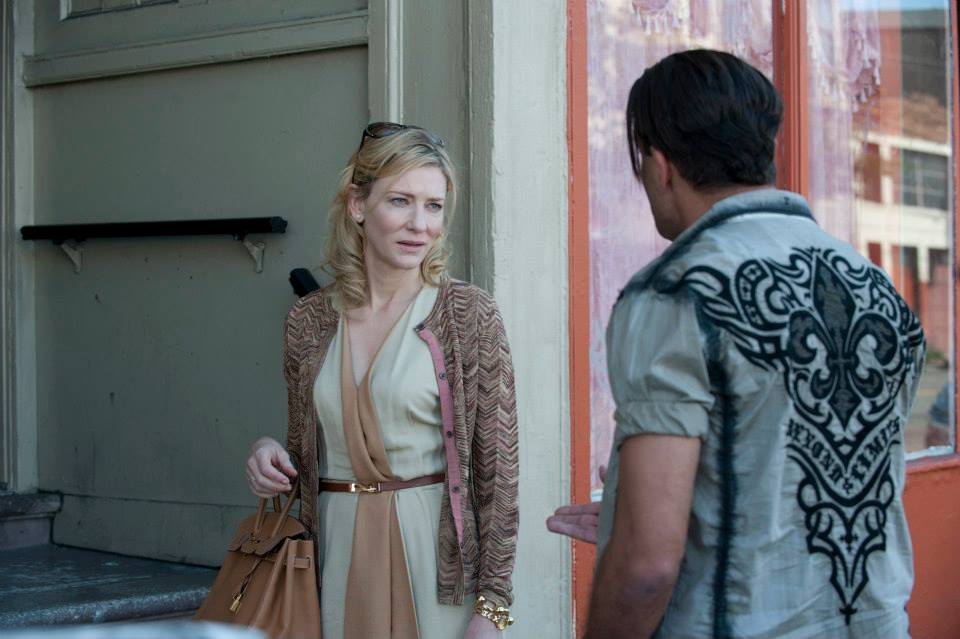Woody Allen’s new film Blue Jasmine unfolds as a riches-to-rags story about a socialite in the lap of luxury whose husband turns out to be a criminal. Cate Blanchett plays the title role of Jasmine, a neurotic woman who falls apart as her wealth vanishes overnight before she is forced to move in with her sister in San Francisco. The film carefully interweaves the past and the present. Flashbacks reveal what life was like for Jasmine before her world crumbled beneath her feet.

Courtesy of Sony Classics.
Owning every scene, Blanchett infuses Jasmine with subtle depth and complexity, a woman who finds herself at an emotional and mental dead end. She becomes increasingly naive about the world, unable and unwilling to materialize any skills necessary for a job. She wants to pursue an online degree in interior design so she decides she must first take a class on how to use a computer. Her new plans fall apart when a wealthy widower quickly sweeps her off her feet. It soon becomes clear that Jasmine wants to be a success without doing anything at all.
There are many striking similarities between Blue Jasmine and Tennessee William’s play A Streetcar Named Desire. Jasmine becomes a modern day version of Blanche, the southern bell who finds herself in a state of complete paranoia and confusion. Both women are so disillusioned by the real world to the point where the prospect of self-sufficiency seems completely unattainable. Each character chooses to paint their own reality as they see fit to the point where they become their own worst enemy, building a new life based on lust and deceit.

Courtesy of Sony Classics.
Throughout the film, Jasmine tries to disown any shred of blame or responsibility for her actions. In the wake of the Bernie Madoff scandal, the character feels so convincing as if she were plucked right out of the Upper East Side. Jasmine embodies the nation’s growing sense of fear and regret as the top one percent devours the rest of the population. Our heroine resists these feelings of shame by reliving the past, fueled by an unrelenting urge to reclaim her glory. However disreputable or cruel Jasmine may seem by the end of the story, she emerges as one of the finest female protagonists of recent cinematic history, filled with unbearable heartache and moral ambiguity.

Courtesy of Sony Classics.

Quiet Lunch is a grassroot online publication that seeks to promote various aspects of life and culture with a loving, but brute, educational tinge. When we say, “Creative Sustenance Daily,” we mean it.

